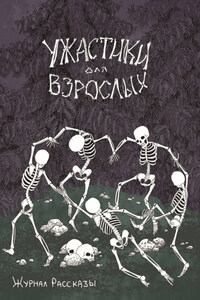INTRODUCTION
When the occasion comes, the proverb comes GHANA
If there is falsity in a proverb, then milk can be sour INDIA
IS THERE still a place for proverbs in the language of the twenty-first century? When I began to compile this book, I asked several people what they thought of proverbs, and encountered a surprising number of negative reactions. One widely held view maintains that proverbs are clichéd expressions, used by those who have not bothered to think clearly. Another sees them as out of date, a reflection of a bygone age. One person – an Internet geek – told me that he ‘wouldn’t be seen dead using one’, citing ‘Too many cooks spoil the broth’ as a case in point.
There is a curious double-think operating. I later heard that same geek joking with some colleagues about the poor military intelligence that had led a certain government to make some bad decisions. ‘Garbage in, garbage out’, said the geek. The phrase originated in his IT world: if invalid data (garbage) is entered into a system, the output will also be invalid. During the 1990s, the expression came to be applied to an increasingly varied range of situations. Within a decade, it had taken on proverbial status. My anti-proverbial geek was using a proverb without realizing it.
Within a few days of that first enquiry, I heard several people dropping proverbs, or fragments of proverbs, into their conversations. ‘Needs must’, said one. ‘Ask a silly question’, said another. ‘People in glass houses’, said a third. None of them bothered to complete the well-known proverbs. They were taken for granted.
People may not quote proverbs in full as much as they used to, or treat them with the high respect of an earlier age, but they certainly allude to them. Anyone looking out for proverbs in everyday situations would quickly be able to add to the following brief selection:
A university department that was being axed advertised its farewell party under the banner headline: ‘Come and Hear the Fat Lady Sing’.
A TV comedian made a risqué joke based on ‘A bird in the hand is worth two in the bush’.
A US motel trying to attract custom to the claimed comfort of its facilities had a sign outside: ‘The early bird only gets the worm’.
A TV comedy programme called itself ‘Birds of a Feather’.
Proverbs continue to fascinate people. Here is a test anyone can do. Choose one of the less familiar proverbs from this book, drop it into a conversation, and see what happens. My favourite is the Irish proverb Never bolt your door with a boiled carrot. There is invariably an interesting discussion about the proverb’s origins and use. And one proverb then reminds someone of another. It is a bit like punning: when one person makes a pun, others try to do better. Puns are batted back and forth. Some linguists have called this phenomenon ‘ping-pong punning’. There is ping-pong proverbing too. Proverb exchanges and contests have a literary history. You will find one in Shakespeare.
There is something about the proverbs associated with other cultures that allows them to evade the kind of criticism we level at our own native expressions. Whatever else we might say about the following, we would not for one moment call them clichés.
A coconut shell full of water is a sea to an ant (ZANZIBAR)
Don’t call the alligator a big-mouth till you have crossed the river (BELIZE)
An untouched drum does not speak (LIBERIA)
Do not try to borrow combs from shaven monks (CHINA)
Such proverbs do more than express a general truth or universal belief. Each in its own way adds a tiny bit more to our understanding of the world’s linguistic and cultural diversity, and thus helps us grasp more fully what it means to be human.
It is a commonplace of comparative linguistics that every language expresses a unique vision of the world. This is not to say that each language is so different from others that its speakers can never communicate outside their own people. The existence of ‘balanced bilinguals’ – people who have learned two languages from childhood with equal fluency – and the everyday phenomenon of translating and interpreting proves otherwise. Rather, it is to point out that languages are not identical in the way in which they talk about the world. There is a limit to the amount of exact translation equivalence that can be achieved, and people have to be satisfied with an approximation. And it is in this area of approximate equivalence that fascinating cultural differences can be found.
Commentators over the years have drawn attention to the importance of a comparative linguistic perspective on life. Here is Ezra Pound, in The ABC of Reading (1960):
The sum of human wisdom is not contained in any one language, and no single language is capable of expressing all forms and degrees of human comprehension.









